Recently a friend asked if we have air conditioning. It was then I realized you may be curious about our living conditions. Rural Jamaica is on the cusp of moving from a developing to developed country. Areas in Kingston, as well as tourist spots in Montego Bay and along the north and west coasts have modern amenities. The only air conditioning we experience is in the ATM kiosks. No matter who’s taking out money we both cram into the space for a brief moment of bliss. From 8 AM to 5 PM it is HOT and HUMID, much like the southeastern US in the summer [without the fall respite]; albeit, ocean breezes crossing the island do make it somewhat manageable.
We look forward to dusk when the sweat abates. Sweat pours off our legs, arms, backs, heads, etc. Poor Gary is always soaked ¾ of the way on the mile and a half walk to the hospital. No AC there either. Indoors the first thing we check for are cross breeze locations and fans. Many carry kerchiefs to wipe sweat from the body. For shade I walk everywhere with my umbrella up. Men aren’t culturally allowed that luxury unless it’s raining.
Water, for any purpose, is limited. We sometimes have it, sometimes not. There’s no predicting when it will be on and for how long. It may be off for a few days and then on for two hours from 11AM-1PM or 11PM-1AM [neither time block particularly convenient]. Other times it may be on for 24 hours. We have storage tanks that are filled for the off-hours and we keep two large buckets filled in our bathroom. When the water is off our house mother has the luxury of a pump that brings it into the house. We try to use it sparingly because electricity is costly.
This may set your hair afire, but there’s no hot water for showers, laundry or dishes. I’ve learned a whole new tolerance for diminished comfort and sanitation. We’ve now been here for nearly three months and not seen anyone sick or develop rashes for the lack of hot water. There could be something to the useless wastefulness of our antibacterial obsession; and possibly our immune systems are even stronger for the lack of hyper-sanitation. We’ve learned to save water and fuel by taking cold bucket showers. We also water plants with dish and laundry water.
We’re lucky to have a washing machine. During training it was handwashing or nothing.
The laundry dries on a line, unless you forget to watch the weather and fail to note the arriving afternoon tropical downpour [those babies come on like gang busters, no light sprinkles to warn you]. Laundry water is recycled between loads. We start with the whites, pull them out for the darks and reset the wash cycle. Then spin/rinse each in the same order. It’s easier than hand washing but we have to keep in mind to watch the cycles, one distraction and 15 gallons of H2O is literally down the drain.
There’s no internet service in our neighborhood or at the hospital. We walk 1½ miles to the library to do research and communicate with all of you. Once the ECG lab is up and running, there may be enough money to fund internet service on a limited basis for the hospital. No guarantees but that was the suggestion.
Our neighborhood initially looks reasonably modern but after a third glance you see the structures are primarily shells of modernity. Most residents grow some foods in their yards: mango, pear [avocado to us], breadfruit, plantain, banana, oranges, yam, sugar cane, aki, kallaloo, etc., and share what they have with neighbors [sharing and helping is an important Jamaican value]. Visits to the grocery store are rare [and expensive], although we haven’t broken the habit yet; we’re now down to a once a week trip into May Pen to a supermarket that has some of the amenities we’re accustomed to [but don’t really need]. One reason for our diminished travel is Gary’s abhorrence of the costly, torturous ten mile trek.
The roads are shared by pedestrians, vehicles [mainly taxis and mini buses], goats, donkeys, cows, chickens, and the ever-present hoard of dogs. Sidewalks, if present, are useless, crumbling clumps of stone. All forms of transport, regardless of the species, take place in the badly pot-holed roads. It’s the pot-holes that make it safe for all to share the roads; cars can’t drive fast [except on the main roads where the taxis and buses drive fast regardless of road conditions]. That reminds me; Gary recently said that even if Peace Corps allowed us to drive he’s not sure he would feel safe driving in Jamaica. The back roads are fine; it’s the main roads that are worrisome.
Take a minute to look around you and appreciate what you have, but please don’t take it for granted or let it reduce our resources.
Taik cyar, Margaret
Monday, September 22, 2008
Subscribe to:
Post Comments (Atom)


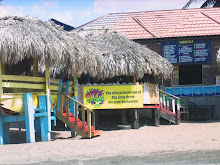
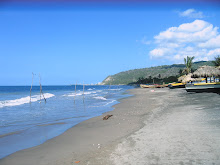
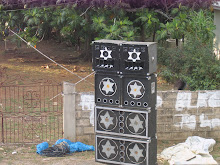
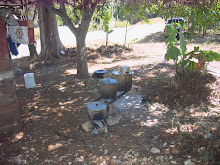


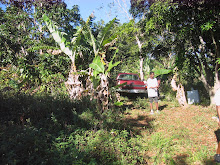
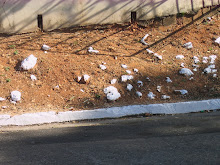
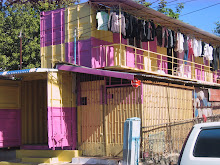
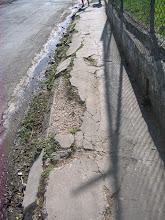
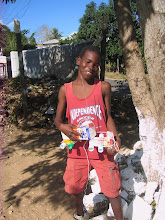
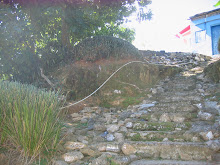
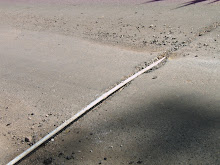
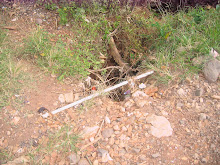
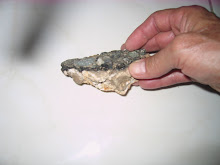
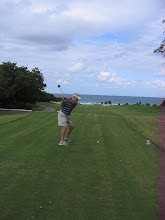
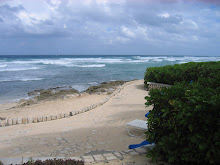
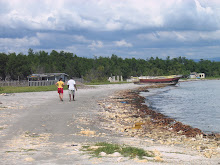
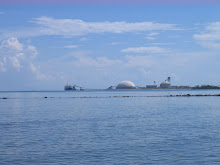
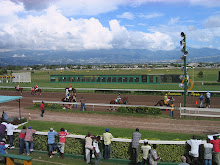
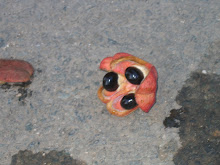
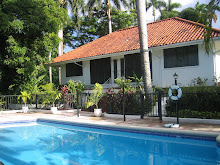
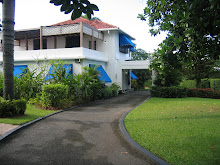
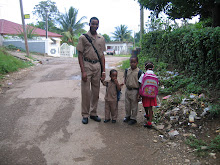

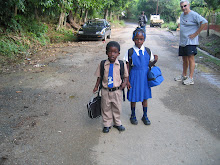
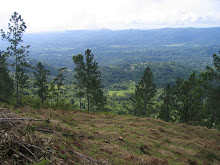
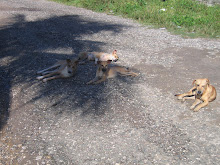
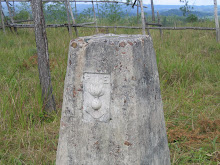
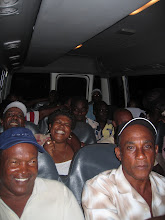
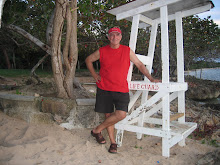
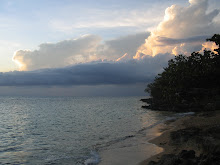
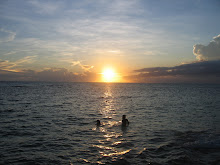
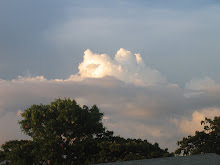
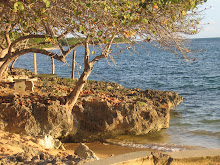
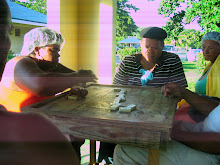
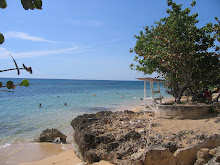
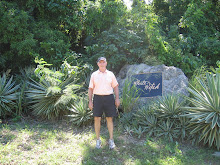
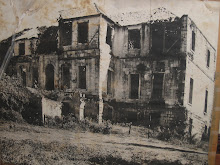
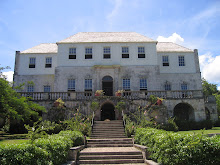


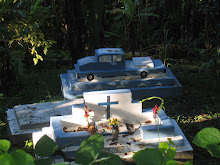
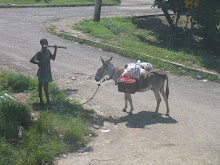
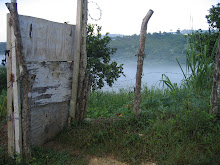

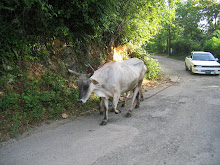
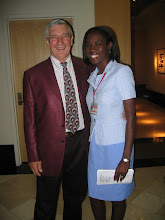
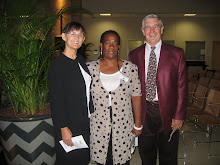

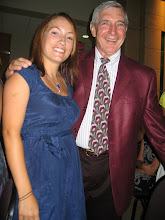
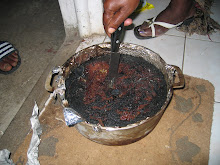
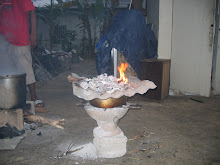

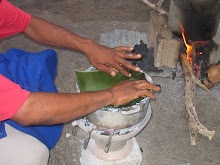
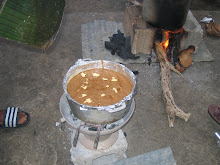
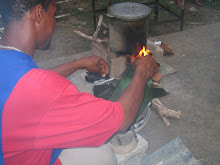
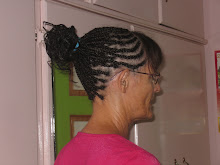

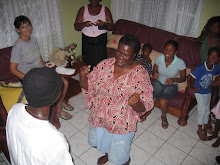
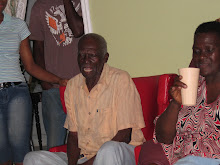
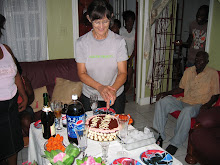








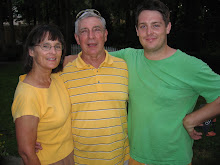
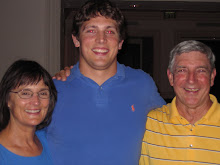
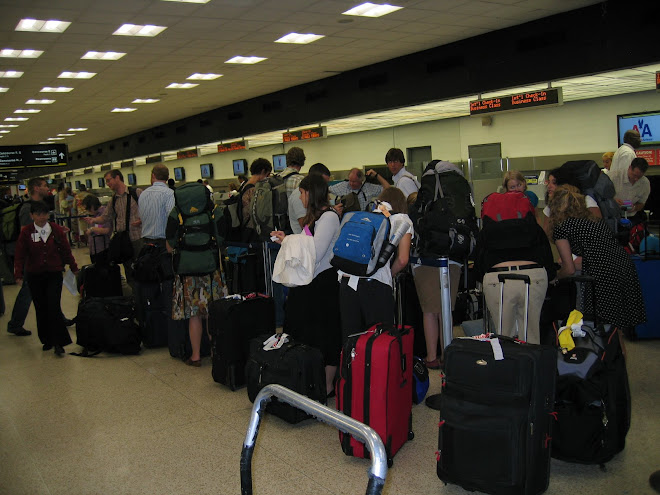

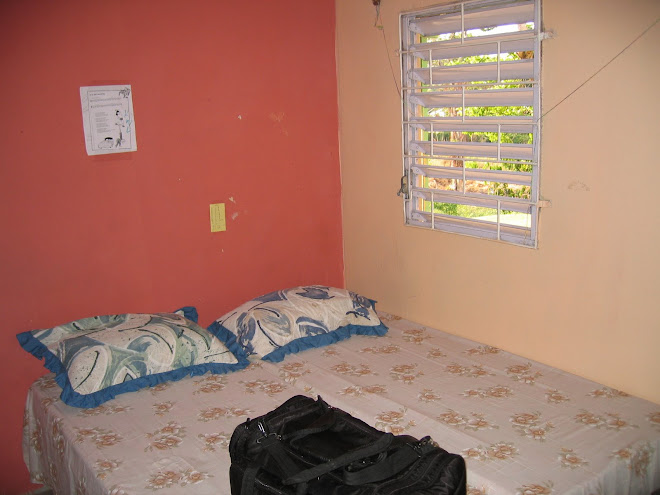
No comments:
Post a Comment